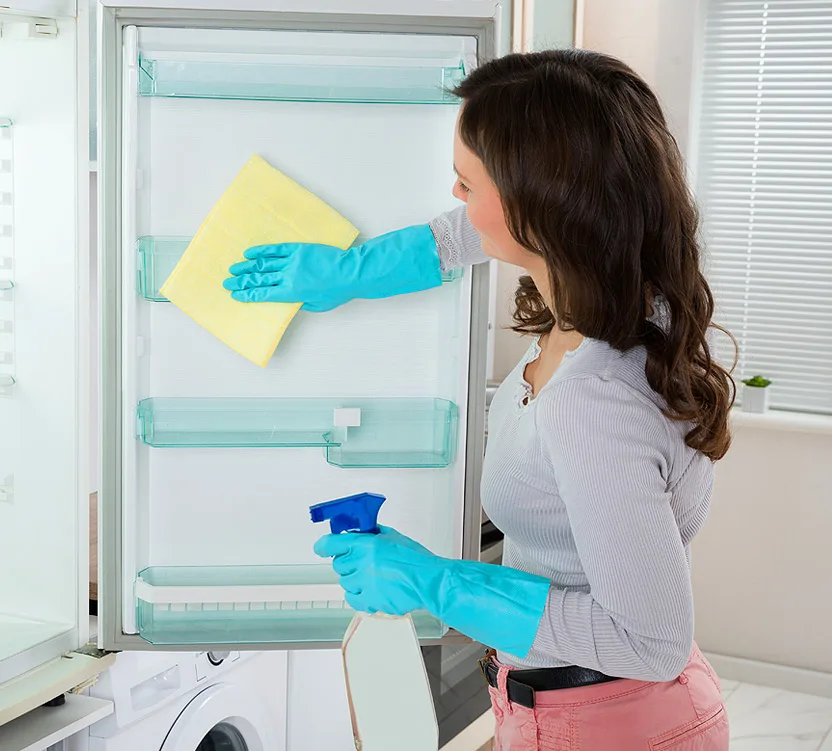Unveiling the Secrets to Refrigerator Mastery
Our dedicated team is committed to providing you with expert advice, practical solutions, and innovative tips to keep your refrigerator running smoothly.

Energy-Saving Tips
RefrigeratorSolve offers expert energy-saving tips to help you optimize your refrigerator’s performance and reduce your carbon footprint.
The numbers on your fridge temperature control knob, typically ranging from 1 to 7, regulate how cold the interior
Yes, in most refrigerators, 7 is the coldest setting, meaning the compressor runs longer to keep food colder. Still,
In almost all refrigerators used in the USA, UK, Canada, Australia, and Europe, 7 is the coldest setting and
In most refrigerators used in the USA, UK, Canada, and Australia, 7 is the coldest setting and 1 is
Fridge temperature numbers explained simply means knowing what the numbers on your refrigerator dial actually do, so you can
Fridge settings coldest number usually means the highest number on your refrigerator dial or control panel, which makes the

Cleaning and Odor Control
Certainly! Here are four concise and unique steps for your website, “RefrigeratorSolve”:
Scent-Savvy Solutions: Offer quick-fix tips and DIY remedies to banish fridge odors naturally.
Spotlight on Sparkle: Showcase innovative cleaning products and techniques tailored for fridge maintenance.
Freshness Forum: Cultivate a community hub where users swap advice, hacks, and success stories for fridge freshness.
Odor Out SOS: Provide personalized troubleshooting and expert guidance to tackle tough odor challenges head-on.
Troubleshooting
Our team of experts has years of experience in diagnosing and solving refrigerator problems, and we’re here to help you get your appliance back up and running smoothly in no time.
The most common fridge temperature control common mistakes include confusing the numbers on the dial for actual degrees
The ideal fridge temperature setting for meat is $40°F$ ($4°C$) or colder, though most food safety experts recommend
The ideal fridge temperature setting for milk is between 35°F and 38°F (1.7°C to 3.3°C). On a standard
The best fridge temperature setting for vegetables is between 35°F and 40°F (1.6°C–4°C), with vegetables stored in a
Many people use Samsung refrigerators with built-in ice makers. But sometimes, the ice maker leaks water. This can
Fridge temperature vs freezer temperature is about keeping your refrigerator cold enough to slow bacteria growth while keeping
Temperature Fluctuations
Are you tired of opening your fridge only to find that your food isn’t as fresh as it should be due to inconsistent temperatures?
- Refrigeratorsolve
The most common fridge temperature control common mistakes include confusing the numbers on the dial for actual degrees and
- Refrigeratorsolve
The ideal fridge temperature setting for meat is $40°F$ ($4°C$) or colder, though most food safety experts recommend keeping
- Refrigeratorsolve
The ideal fridge temperature setting for milk is between 35°F and 38°F (1.7°C to 3.3°C). On a standard dial
- Refrigeratorsolve
The best fridge temperature setting for vegetables is between 35°F and 40°F (1.6°C–4°C), with vegetables stored in a high-humidity
- Refrigeratorsolve
Fridge temperature vs freezer temperature is about keeping your refrigerator cold enough to slow bacteria growth while keeping your
- Refrigeratorsolve
The ideal refrigerator temperature setting is 37°F (3°C), which keeps food fresh while slowing down harmful bacteria growth.From my
Smart Refrigerators
We understand the importance of having an efficient and convenient appliance in your kitchen, and that’s why we’re here to help you make the most out of your smart fridge experience.
